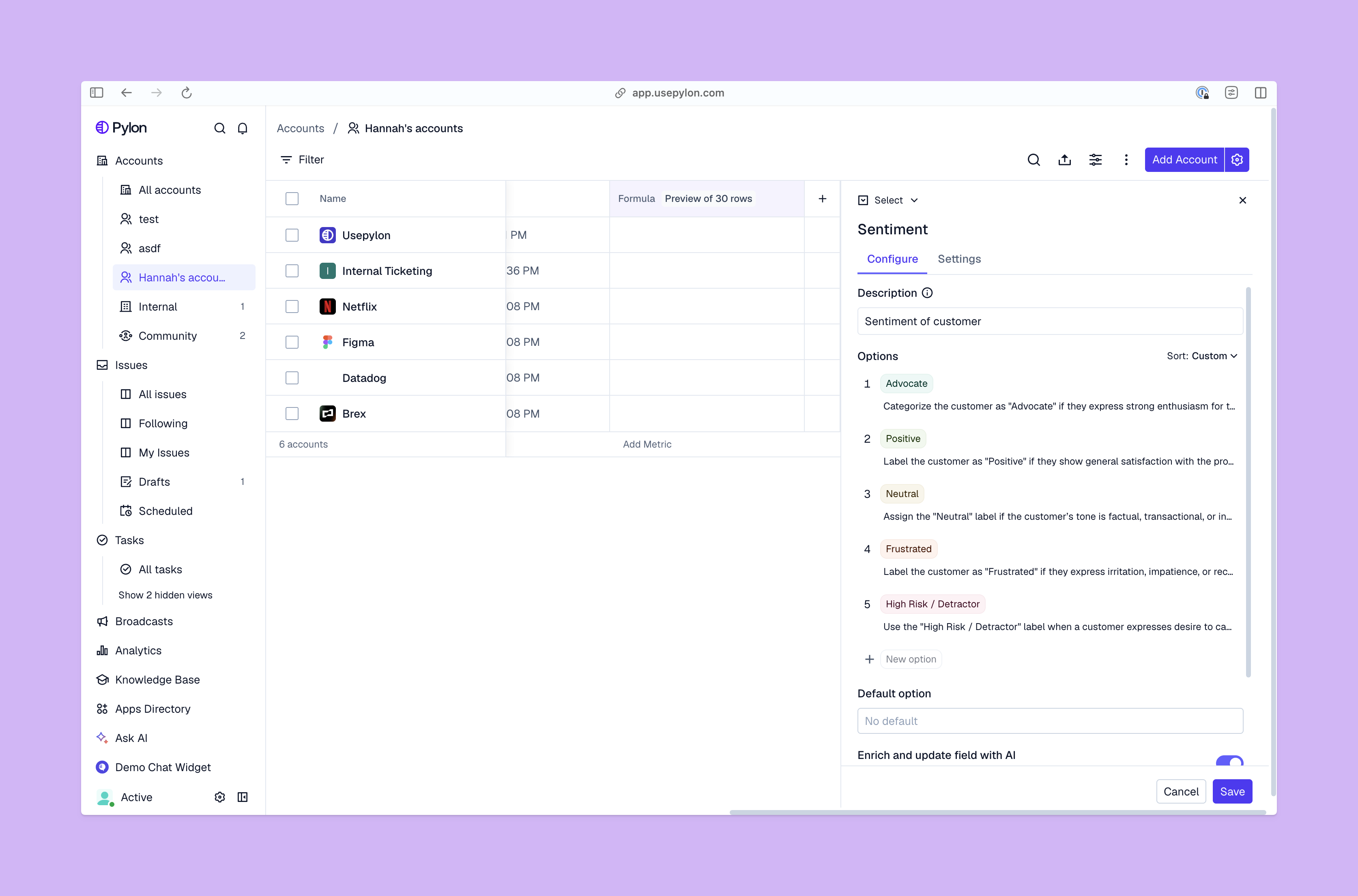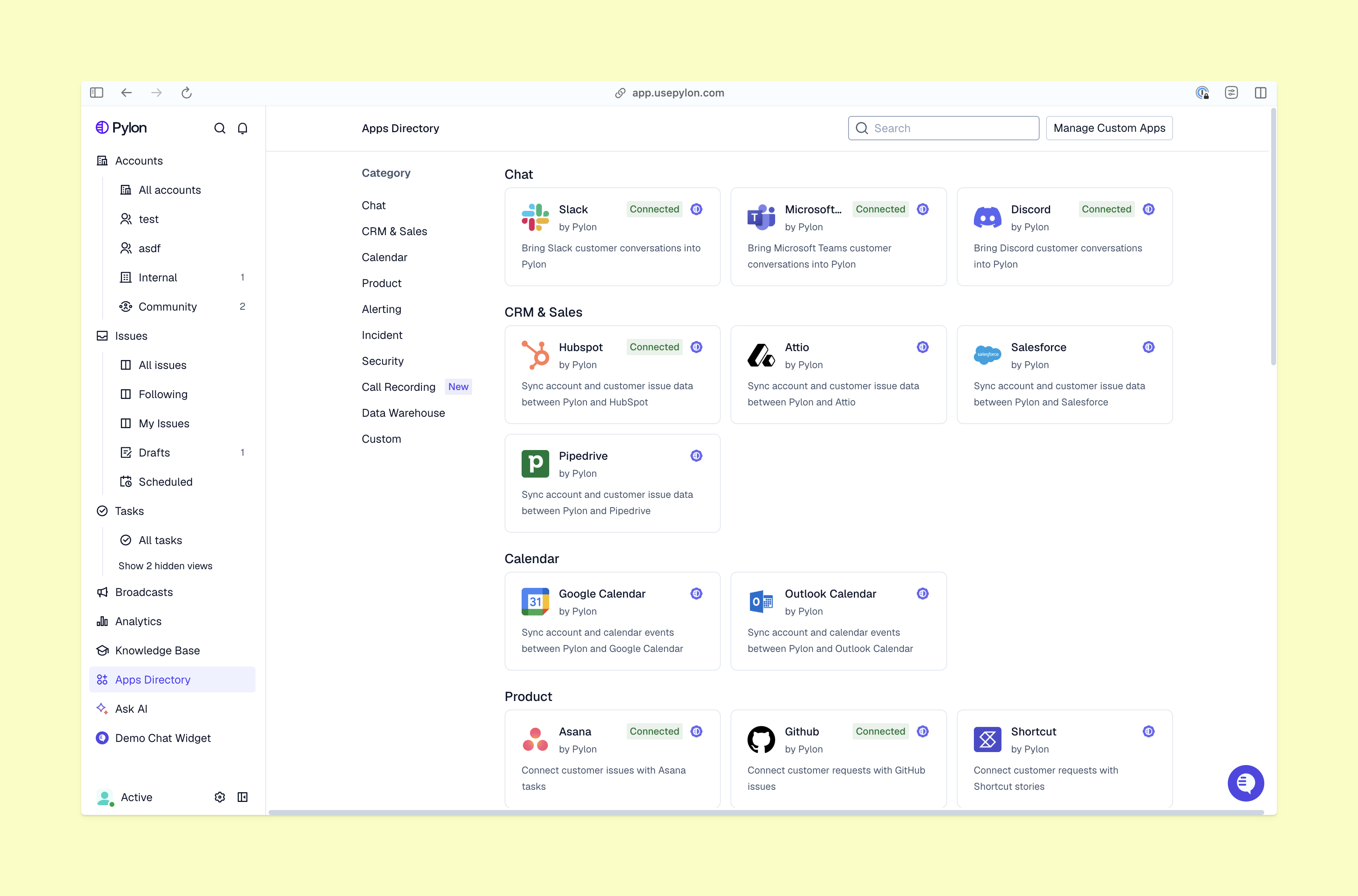Building Customer Success: Facts, Strategies, and Scaling
Customer success is a role and a mindset. Learn why it matters, as well as key strategies and tips to boost customer satisfaction and grow your company.
Winning a deal and bringing in a customer is just the start of an important relationship. Your interactions together will decide whether they’ll renew, grow their account, or leave for another solution. For B2B companies, that ongoing partnership is driven by strong customer success strategies.
Customer success is about ensuring your company has the right team in place to help people use your product in a way that fulfills a business need. It means being proactive by anticipating customers’ needs before they have to ask. Strong customer success programs turn routine accounts into loyal, long-term customers that drive steady growth.
This article explains what customer success is and how a clear strategy can help you not only renew customers, but also build your reputation and increase revenue. To create a strong customer success team, read on to learn what customer success managers (CSMs) do, the principles behind effective programs, and how Pylon helps teams proactively act on customer insights.
What’s Customer Success?
At its core, customer success is about helping customers get the result they expected when they chose your product or service. It’s a shift from problem-solving after something happens to preventing problems in the first place by anticipating the customer’s needs to set them up for success.
A CSM looks for patterns, not just tickets. Maybe usage has dropped, or adoption of a new feature is low. Those signals tell a CSM to reach out before the customer gets frustrated. The goal is simple: help customers reach their goals so they keep seeing value and your company avoids churn.
That proactive mindset is what sets customer success apart from customer relations or customer service. While support teams fix day-to-day issues, success teams focus on progress, results, and long-term growth to build a lasting partnership. Those strong customer relationships keep a company’s reputation glowing and revenue growing.
Why Is Customer Success Important?
Customer success is as important for the customer as it is the company. When customers reach their goals, they renew, expand, and tell others about their experience, creating organic growth through referrals and recommendations. When they don’t see results, they churn, and that loss can add up fast.
For many companies, customer success strengthens reputation and trust. A strong customer success program looks at every stage of the customer journey. Teams can see who’s thriving, who’s slowing down, and where improvements are needed. With that insight, they can act early so customers feel taken care of and trust grows.
Since helping customers thrive ultimately increases revenue, customer success also brings pre- and post-sales teams together around a shared goal. Over time, that unity becomes a major competitive edge.
What’s a Customer Success Strategy, and Who Needs One?
A customer success strategy is a plan that connects every interaction to a goal. It defines how you’ll support and grow customers as they achieve their goals with your product, and how to scale your own customer success.
You don’t need a large customer base to benefit from this structure. Startups working on their first renewals and enterprise SaaS companies managing hundreds of accounts both rely on clear systems to scale well. A consistent customer success strategy ensures every customer gets the same thoughtful experience, no matter who they talk to.
Strong customer success plans usually include:
- Clear onboarding stages and communication checkpoints
- Health scores tied to usage and renewal metrics
- Playbooks for renewals, at risk-accounts, and expansion
- Defined ownership between departments so nothing slips through
When everyone works together, this framework can help companies quickly grow their customer base without losing high-quality, consistent interactions.
Key Principles and Foundations of Customer Success
Every company’s approach to customer success looks different, but the best programs follow a few key tactics to determine how to measure customer experience success:
- Proactive engagement. Strong teams don’t wait for customers to reach out — they monitor data, anticipate needs, and check in early.
- Goal alignment. Each customer relationship starts with communication, clearly defining success and shared goals.
- Data-driven insight. Metrics like adoption rate, health score, and renewal likelihood show teams where they’re needed most.
- Cross-team collaboration. Sales, product, and support all work together to help success teams deliver a seamless experience.
- Continuous feedback. Customer success teams gather information about what’s working and share it with internal teams to make sure improvements match real-world needs.
- Scalability through technology. Tools that automate follow-ups and surface insights help success teams stay personal, even as they grow. Pylon’s Account Intelligence can flag at-risk customers and trigger action items automatically, which frees up your team for deeper conversations.

Together, these principles build a sustainable customer success model that grows with your customer base.
Key Responsibilities of CSMs and Teams
A CSM is part advisor, part problem-solver, part strategist. Their work balances planning with day-to-day customer communication.
The responsibilities of a CSM and their team often includes:
- Onboarding new customers. Helping teams get started and see value quickly.
- Tracking account health. Watching adoption trends and acting early when there are signs of insecurity.
- Managing renewals. Staying ahead of contract dates and making sure customers have strong reasons to stay.
- Sharing feedback. Collecting insights and passing them to product and engineering teams.
- Promoting best practices. Hosting sessions, writing guides, or offering quick training sessions for the customer.
- Coordinating with other teams. Connecting customers with the right support team members when needed.
- Maintaining communication. Keeping conversations with customers clear, open, and ongoing.
Pylon’s Account Intelligence helps customer success teams handle all of these responsibilities in one place. We use conversational data across your support interactions to calculate custom health scores, flag churn risks, auto-generate action items for your accounts, and more. This helps you act quickly on customer insights and stay organized without constant context-switching.
What Makes Customer Success Different From Other Roles?
The daily tasks and goals of customer success are similar to other teams, but the role isn’t the same as customer support or account management (or even customer experience).
Here are the distinctions between each team with major overlap.
Customer Support
Customer support teams are problem-solvers. When a customer has questions or runs into problems, customer support teams take charge. They keep things running smoothly across multiple channels, like Slack or Microsoft Teams, and their outcomes are measured by response time and quality.
Pylon helps support teams do this by centralizing every customer touchpoint into a single workspace. This way they can deliver omnichannel support that feels seamless from start to finish.

Customer Service
Customer service teams are common in B2C companies. They cover all direct interactions like billing questions or general help. It’s less technical than customer support, focusing on more general questions, but boosts customer success by building goodwill. Many teams streamline these processes using customer service software to keep responses consistent. Unlike customer success, customer service isn’t closely connected to long-term relationships.
Account Management
Account management focuses on operating contract renewals and upsells to generate revenue. In many companies, customer success teams work closely with account managers, but center their efforts on helping customers reach the outcomes that lead to growth and renewal.
Customer Experience (CX)
CX includes every touchpoint the customer has with a company and its product or service, from the first demo to the latest renewal. Customer success teams make sure that each step in CX adds up to a positive and valuable experience.
Together, all of these roles form a complete ecosystem. When they work in sync, customers get efficient help, smooth communication, and excellent outcomes.
7 Tips for Growing Customer Success
Customer success works best when everyone has a distinct part and clear goals. Here are seven simple ways to scale your customer success approach:
- Build a dedicated customer success team. Assign clear owners for onboarding, renewals, and account health.
- Spot trends early. Review tickets and survey data to find what’s working and what isn’t.
- Align goals. Make sure every department understands how they support customer outcomes.
- Create a strong onboarding plan. Start off on the right foot with a seamless first experience to shape long-term satisfaction.
- Segment your customers. Tailor communication by size, potential, or engagement level.
- Encourage advocacy. Ask happy customers for referrals or testimonials.
- Track real results. Focus on customer retention, expansion, and long-term value for the customer.
When these steps become routine, customer success turns from a department goal into a company-wide habit.
Unlock Customer Success and Growth With Pylon
While customer success can be a dedicated team within a company, it doesn’t have to be just one role. Customer success is a shared mindset across the whole organization. When sales, product, and support teams all work toward the same customer goals, growth follows naturally.
Pylon turns that mindset into measurable results. By unifying conversational data, omnichannel communication, and AI workflows in one platform, Pylon helps companies scale customer success and support while keeping it personal.
Pylon is the modern B2B support platform that offers true omnichannel support across Slack, Teams, email, chat, ticket forms, and more. Our AI Agents and Assistants automate busywork and reduce response times. Plus, with Account Intelligence that unifies scattered customer signals to calculate health scores and identify churn risk, we're built for customer success at scale.










